“Biodiversity is the variety of all living things; the different plants, animals and microorganisms, the genetic information they contain and the ecosystems they form. Biodiversity is usually explored at three levels – genetic diversity, species diversity and ecosystem diversity. These three levels work together to create the complexity of life on Earth.” Source – Australian Museum.
The Gold Coast is one of the most bio-diverse regions in Australia, with 49% of land covered in native vegetation of which only 19% is in public ownership. The health of our biodiversity is threatened by a rapidly growing population and subsequent development as well as climate change.
The Goal of the Campaign Team on Biodiversity is to advocate for the protection of all native species through increases in the extent of protected areas, such as national parks and conservation reserves, and improved funding for effective management. Better legislation is also needed for all areas of development.
The major biodiversity campaigns Gecko is currently involved in are:-
- Advocating to Queensland State Government for a large increase in national parks. Queensland has only 8.2% of land protected areas (of which only 5.2% is national park), less than half the State and international goal of 17%. The Government recently adopted the Protected Area Strategy of 2020-2030 which is a good beginning, but more is needed. You can read about that here https://parks.des.qld.gov.au/__data/assets/pdf_file/0016/212524/qld-protected-area-strategy-2020-30.pdf
- Gecko is a co-respondent in a court case to stop an additional water mine extraction of ground water on Springbrook Plateau because of serious concerns about the impact on the adjacent World Heritage listed Springbrook National Park.
- Gecko works with other conservation groups to reduce the impact of development and infrastructure projects, such as the Coomera Connector highway, on koalas and their habitat. Koalas are in decline on the Gold Coast due to habitat loss, disease and vehicle strikes.
- Containment of mountain bike trails and removal of illegal trails in Nerang National Park. This is a growing sport, but it is not permitted in national parks under the Nature Conservation Act and alternative venues must be found to protect Nerang National Park biodiversity.
- Hosting a public forum on the benefits and pitfalls of eco-tourism in protected areas.
Protecting World Heritage in Our Backyard
Springbrook National Park is a short drive inland from Surfers Paradise and is a national park that is so exceptional that it has the status of being a World Heritage listed area and needs our ongoing support and protection from inappropriate development.
Springbrook is part of the Gondwana Rainforests of northern New South Wales and southern Queensland. The Gondwana Rainforests have an extremely high conservation value and provide habitat for more than 200 rare or threatened plant and animal species. Recently as a result of the devastating bushfires of last summer the International Union for the Conservation of Nature (IUCN) has reassessed the status of Gondwana Rainforests to “significant concern.” This being the case we cannot afford any further degradation from any source.
The World Heritage listing of the Gondwana Rainforests is based on the following criteria:
- As an outstanding example representing major stages of the earth’s evolutionary history.
- As an outstanding example representing significant ongoing geological processes and biological evolution.
- Containing important and significant habitats for the in situ conservation of biological diversity.
https://www.environment.gov.au/system/files/resources/031bb196-cb9d-4980-bc80-c1affec2c0d7/files/world-heritage.pdf
These irreplaceable qualities and values are often forgotten by those who only see national parks as a place for visitors to walk and picnic, or to exploit with commercial development such as a cableway from Mudgeeraba to Springbrook. All of these precious relics of past eons of time have had to be defended from exploitation and it is the community which takes on their defence frequently with little assistance from governments or legislation.
Current Threats to Springbrook National Park
Cableway
A cableway to Springbrook is a threat to the exceptional wildlife and habitat of world heritage listed Springbrook National Park. It would impact on rare and threatened species and increase the risk of fire and landslides.
Gecko, along with Queensland Conservation Council and National Parks Association of Queensland is calling on the LNP to rule out a cableway through the World Heritage listed Springbrook National Park and commit to meaningful consultation with local communities before announcing plans for developments in and around protected areas.
Read the joint media release here Springbrook Cableway
Read more about Springbrook Cableway FAQ and what you can do here.
Water Mining.
Gecko has joined with Council and other conservation groups and individuals as respondents in a court case about application by Hoffman Drilling Superannuation Fund Pty Ltd for a third water mine immediately adjacent to the Springbrook National Park. The case is likely to be heard in the Planning and Environment Court in April 2021.
The case is at the stage that the expert witnesses for both the applicant and the respondents have exchanged reports.
In the meantime the State Government has placed a 12 month moratorium on any new water mines in the area. This will need to be renewed before this case goes to court.
Water mining or water extraction via bores has been going on for several decades with little regulation, monitoring or investigation as to whether it is having an impact on the surrounding national park ecosystems. The water extracted is carried by truck down the mountain to bottling plants where it becomes “spring” water in an endless supply of plastic bottles.
Coca Cola and another owner have unregulated bores operating at Springbrook and efforts to contain the amount extracted and monitor this have proved extremely difficult as neither party answers requests for such data until many months have passed or not at all. Water mining falls between the cracks of State and Local government legislation with both parties passing the buck to the other.
However some 300 objections have been lodged to this third application citing the following factors:
- Zone: The land in question is zoned rural, which does not permit the commercial extraction of ground water.
- Need: The applicant has not demonstrated any current or future resource need for bottled water, indeed one could state that there is no need for bottled water as the tap water provided by Gold Coast Council is sufficient for the community’s need and the use of ground water for plastic bottles adds to the pollution of the Gold Coast.
- Sensitive environment: There can be no argument that the areas surrounding this Lot 36 are extremely sensitive as they are worthy of World Heritage listing. Neither can the applicant “ensure that site rehabilitation enhances the ecological functions and visual amenity of the resource areas” when he has illegally cleared the land of all vegetation and it is not possible to reconstitute an ecosystem as sensitive as those on the Springbrook Plateau.
- Scientific evidence is required: The applicant has not provided adequate scientific evidence that the drawdown of unspecified amounts of water from these bores will not affect the amount of water needed for the local ecosystems.
- Cumulative impact: The applicant has not taken into account the cumulative effect of his bores and those already existing in Repeater Station Rd. These other two water extraction sites are also largely unregulated and the cumulative impacts has not been assessed or adequately studied
- Traffic: the applicant claims that the trucks do not present a traffic hazard, despite the fact that the road (indeed all Springbrook roads) is narrow, only 5 metres, and has an intersection with poor visibility. The trucks would not be able to pass the tourist buses safely especially when there is no footpath and there will be pedestrians using the same road to access best of All Lookout.
Current Actions

Tourism or National Parks
July 14, 2021
In recent months the Department of Tourism has called for expressions of interest for development of eco- tourism ventures in National Parks. Queensland has only 7% of its area as…
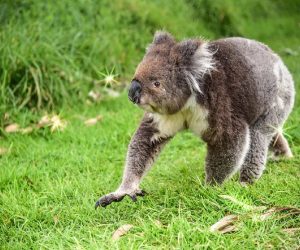
Koalas in Our City
July 14, 2021
Regrettably there has been little improvement in the plight of the koala on the Gold Coast and throughout South East Queensland as the population continues to grow and the development…

Koalas in Crisis
June 1, 2021
Our furry friends are in trouble. Despite Borobi koala being chosen as the icon for the Commonwealth Games this year, the real koalas on the Gold Coast are in dire…
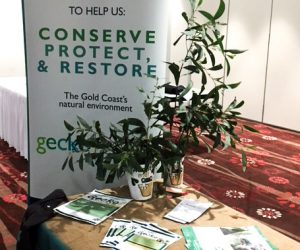
EPBC Bi-Lateral Approval Bill-Submission about Proposed Changes
December 1, 2020
Over that time Gecko, as a leading regional environmental body, has actively participated in all consultations relating the EPBC Act, the cornerstone of Australia’s environmental protection as well as to…
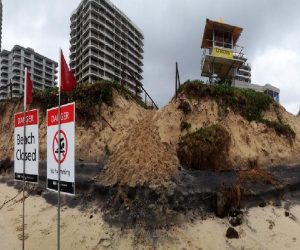
Environment Protection & Biodiversity Conservation Act Proposals
November 20, 2020
The Federal legislation the Environment Protection Biodiversity Conservation Act (EPBC) is under review by Professor Samuels, and his final report is due for release prior to Christmas. In the meantime…
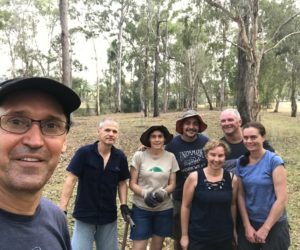
Gecko’s Campaigns Team Annual Report 2020
November 6, 2020
This year began with the horrific fires along the eastern seaboard and we were all very distressed not only with the human loss of life and property, but also the…

Koala Conservation Update 2020
February 3, 2020
The State Government has been developing a koala conservation strategy for several years in response to the alarming decline in koala numbers over past decades. This is mainly due to…

Wildlife Care Organisations needing Donations
January 14, 2020
The toll on wildlife throughout the eastern states of Australia has been high, but many small and large wildlife care organisations are trying to rescue and care for injured and…

Coomera Connector Proposed Road
November 5, 2019
The public consultation period for the Coomera Connector (southern section), or M2 as some call it, will begin on Saturday 9th November, from 7am –3pm at Carrara Markets. This is…
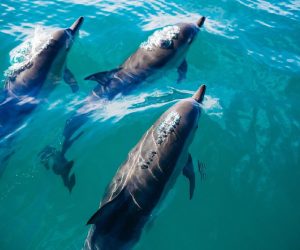
Moreton Bay Marine Park Review
July 14, 2019
Currently Moreton Bay Marine Park’s southern boundary is the northern Seaway wall and the west takes in some of the Broadwater. The review is in 2 stages, with Stage 1…

Campaigns Update May 2019
May 8, 2019
Federal Elections and climate policy: After years of frustration with federal government inaction or worse on climate change, the topic is now well at the top of election discussions. The…
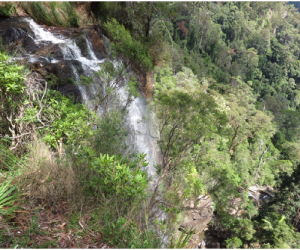
National Parks – a jewel to protect or ripe for exploitation?
January 17, 2019
Since the very first Queensland National Park was established in 1908 at Witches Falls on Mount Tamborine, the debate about the purpose of national parks has continued. Are national parks…
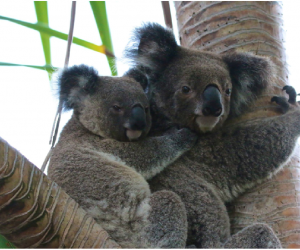
Koalas in Our City – Going…going..
January 16, 2019
Your help is urgently needed in the campaign to save the Gold Coast’s koalas. It is only public pressure on both State and Local Government that will force action.